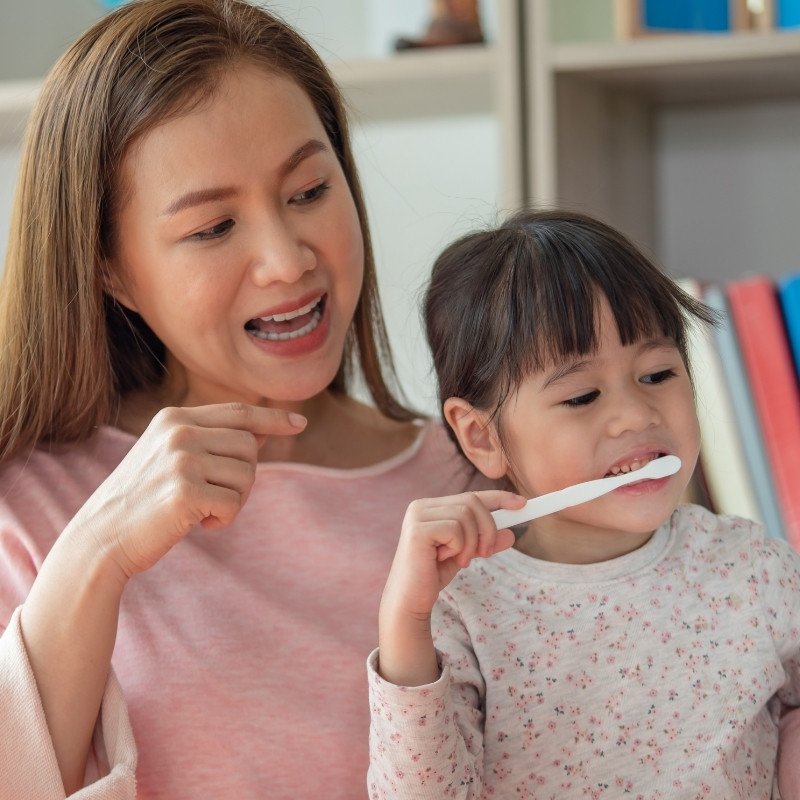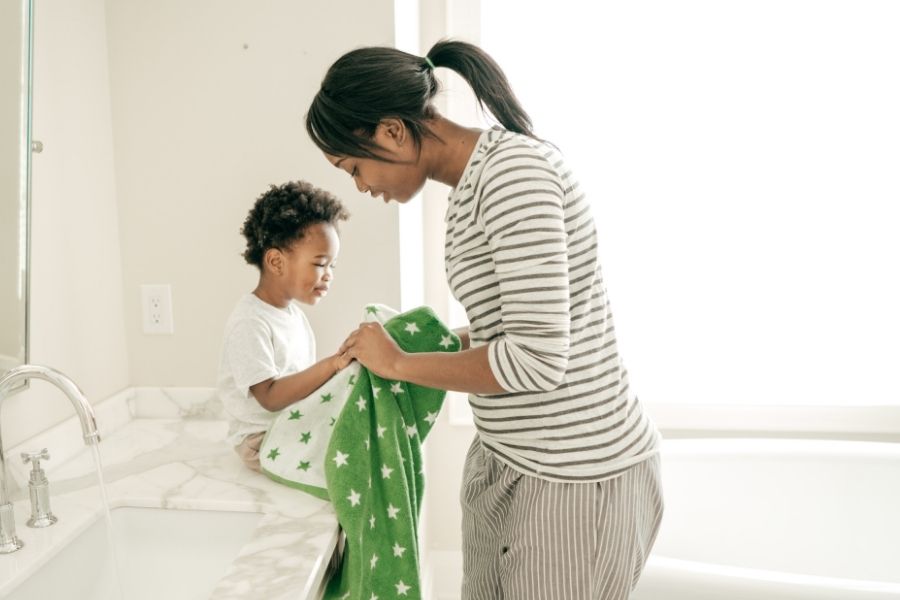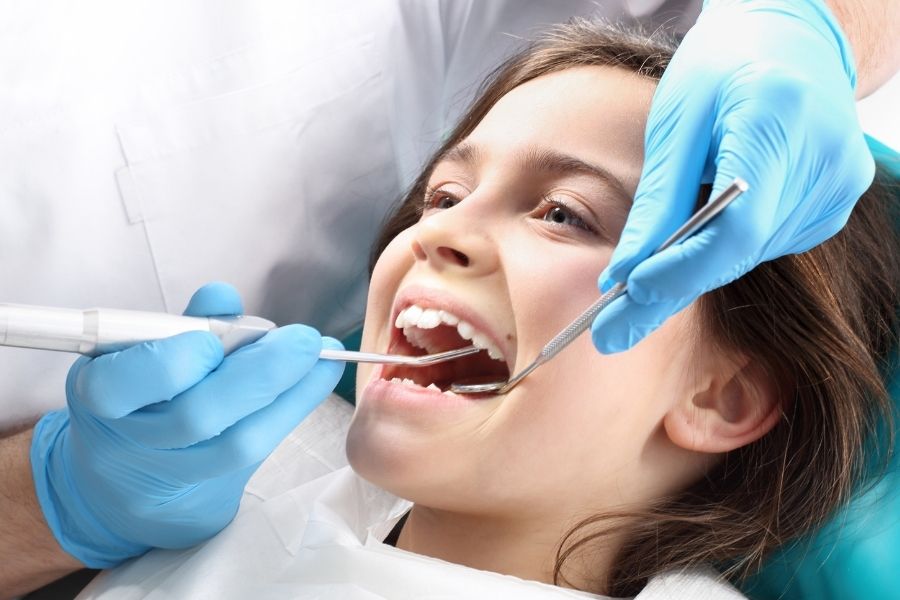
How to introduce personal hygiene to your child
With germs on the rise over the winter period, it’s important to teach children not just how to follow good hygiene routines to stay healthy but also why these are important.
In this article, we will explore how to talk to your children in an age-appropriate way about keeping clean and how their needs will change when they hit puberty.
Why is good personal hygiene important?
Establishing routines such as bathing, washing hands and flossing and brushing their teeth every morning and night are key lessons of childhood that become increasingly important as children near puberty.
It is important because it helps to protect from bacteria which can lead to illness, particularly for children as their immune system is not yet as strong as that of an adult.
Additionally, personal hygiene doesn’t just relate to physical health but it’s also an important act of self-care.
This is because it’s about caring for your general wellness and learning to love yourself by keeping your body happy and healthy.
Therefore, encouraging routines as those listed above can also help to teach your child the importance of self-love and self-care at a young age, which will help them to feel comfortable with themselves as they get older.
Struggles with encouraging personal hygiene
However, this is not always easy and some children may be particularly resistant to establishing a clean routine!
In a survey by the Good Play Guide in December 2021, parents reported struggles with encouraging children to brush their teeth and care about their oral hygiene:
“My youngest doesn’t like to brush his teeth, he likes to be left alone.” – Dad of 3 year old boy
“Brushing his teeth! He’s just a lazy boy who doesn’t seem to care at his age…” – Mum of 12 year old boy
Firstly, if you are struggling with getting your child to go and brush their teeth, for example, setting a timer may help. This sets clear boundaries and avoids delay without the need for ‘nagging’ your child into completing the task. They will come to understand that once the timer goes off, they are expected to have started brushing their teeth and if they haven’t, there may be an appropriate consequence.
It also helps if children understand the importance of hygiene and self-care. Using age-appropriate language will mean you are able to most effectively engage and encourage your child.

Talk about it in an age-appropriate way
While younger children will be able to grasp basic routines as something that they do every day, they may lack an understanding of the reasoning behind this.
Older children will be able to grasp the reasoning behind why it is important and how it benefits them.
Start with the basics
When explaining personal hygiene to a young child, it doesn’t have to be complicated – it is just about how we look after our bodies.
Young children will already understand things in terms of what is ‘good’ and what is ‘bad’ and so you can use this foundation to explain good and bad habits.
You can establish what is good and healthy e.g. bathing each day and what is bad and may lead to negative consequences, e.g. not washing hair and getting head lice.
By letting your child do these tasks themselves from a young age, you can teach them about the importance of good hygiene habits.
For example, by age 3-5 you can allow your child to bathe, brush their teeth, wash their hands and use the toilet independently with you present, to encourage them when they are doing well and show them what they can do better.

Routines and Rewards
Behaviour charts and incentive systems are also a great place to start for younger children – for example a daily chart can help to reinforce hygiene-related behaviours along with other parts of the routine, such as dinnertime and bedtime.
This can then be rewarded at the end of each day for younger children, and as they get older, rewarded on a weekly basis as they complete a certain amount of tasks per day.
Keep the conversation going as children get older
As children continue to grow, make sure you keep the conversation around personal hygiene going.
For example, once they master brushing their teeth by themselves, move on to the importance of flossing.
For older children, we can also talk about some of the reasoning behind having good hygiene habits.
For example, being clean, well-dressed and well-presented helps with positive self-image, which makes children more likely to be confident in both social and school settings.
Keeping communication lines open as they reach puberty is also helpful, as children will experience changes in their body that make personal hygiene important, such as new body hair, skin becoming oilier and sweat glands in the underarm area becoming more active.

Children approaching puberty
As they approach puberty, children’s bodies will need more care to remain clean, meaning they will need some time and practice to learn the new habits needed to take care of their changing bodies.
It is therefore helpful if they already have a foundation of knowledge about the basics to good hygiene.
Many children may resist the change in routine around this age, which may not be down to stubbornness but a need for patience and time to adjust.
It is important to remember to be gentle and kind when handling the issue of hygiene, especially around this age as children are likely to be sensitive or easily embarrassed.
Modelling a healthy routine
One of the easiest ways to help your child establish a good hygiene routine is by setting a good example yourself.
For example, setting a fixed time in the morning to brush your teeth together encourages them to get involved and copy you.
You should also set a good example by ensuring the whole family visits the dentist once every six months.
By helping your child to build a positive relationship with the dentist, they will be more likely to have positive experiences and continue to go as they grow older and more independent.

Conclusion
Establishing a good personal hygiene routine is an important lesson of childhood and the best way to keep bacteria and illness at bay.
We recommend talking to your child about the topic of personal hygiene in an age-appropriate way.
With younger children, focus on the basics, use routines and rewards and make it fun.
With older children, we can talk about why we need to take care of our hygiene, educate and keep the lines of communication open around puberty.
Hygiene and self-care is an important part of all of our lives so make sure to get all of the family involved and set a good example that your children can follow and use to establish their own healthy hygiene routine.


